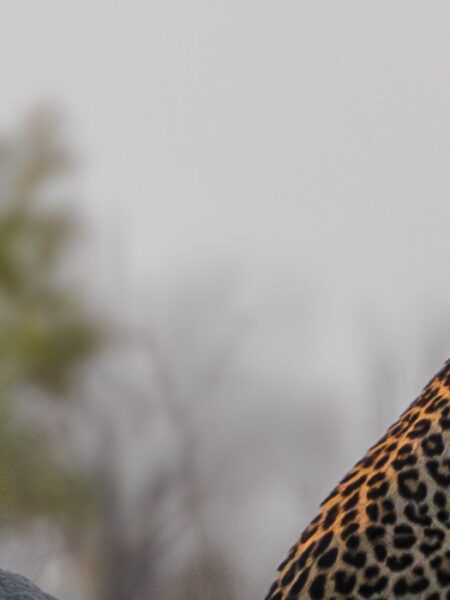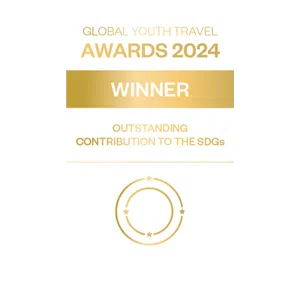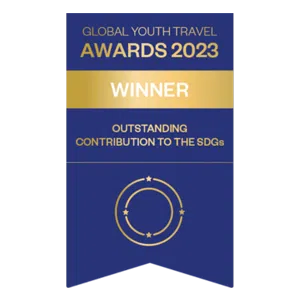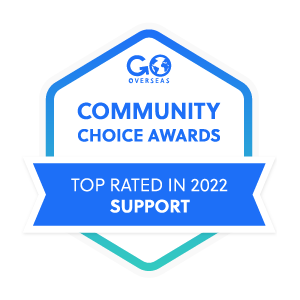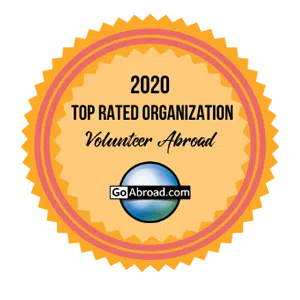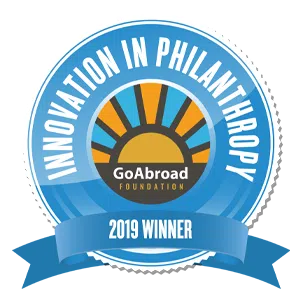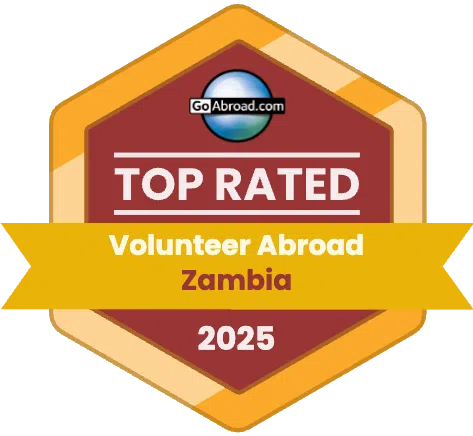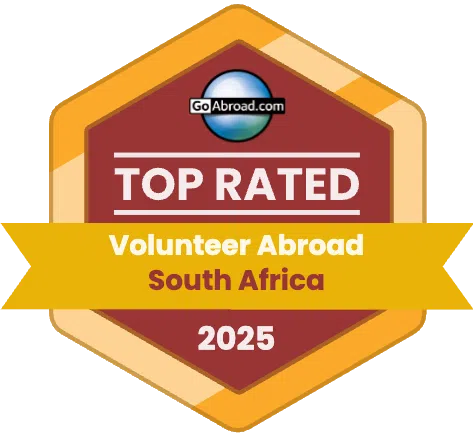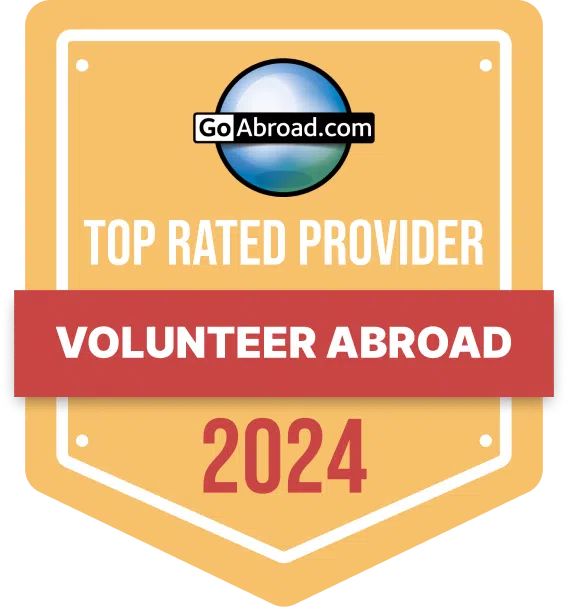The Power of Education in Transforming Communities
Education allows for inclusion. It allows for everyone to have a voice and to become a contributor to society, instead of marginalized. By investing in a child’s education, you are investing in a country and supporting them to uplift themselves – and many others – in the process.
It is the first day of a new school year and, outside the Livingstone African Impact offices, there is a steady procession of children. Some come alone, others with friends, gossiping and laughing together. More arrive with their mothers, small hands nervously clutching at brightly coloured chitenge skirts.
These students are part of our Sponsor a Child program in Zambia, which was set up by our foundation and works with underprivileged children by sponsoring their education and providing support.
Sharon, our Sponsor a Child coordinator, is in high demand. Handing out rucksacks laden-down with books and pens and offering last-minute advice. The children leave with fresh uniforms and big smiles. For the parents, it is a relief to know their child will receive an education for the whole year.
“Education is an equalizer,” says Malamo Humphrey, headteacher at Libuyu community school. “It means every child can enjoy the same equal rights as other children. It gives them an advantage in life, where they may have been disadvantaged before,” he says.
Indeed, do not underestimate how seriously the children appreciate education here. There is a huge appetite for knowledge, which they eagerly devour. But it comes at a cost: low employment levels and high mortality rates mean some children will never get access to even the most basic of education.
Knowledge is Power
Later that week, African Impact staff are sitting in a classroom in Livingstone. It is a respected school, where there are strict exams to pass for entry. Currently, we have 13 girls sponsored through our program here. 11 of them are sitting in front of me, immaculate in their bright blue and white uniforms.
Some of the girls giggle nervously. Others come alive as they speak passionately about how much sponsorship means to them. All of them are extremely charismatic and eloquent.
“Without education, I would not have been able to have a goal or to reach my aim and vision of myself and family, in say five to 10 years’ time,” one 14-year-old student tells me. “In Zambia, poverty levels are high, and without education, I could only have done something to contribute to poverty.”
Currently, more than a quarter of a million children are not enrolled in school. 47% do not finish primary school, and 53% of the children who do complete primary do not enter secondary school.
The girls all say they want an education to help, not just their future, but their families.
“Looking at my background, where I come from, I need to change everything around me, and by going to school, that will be the best way. My parents may face some financial situations, but with me being on sponsorship, we do not have to face that problem,” a second girl says.
Later, I meet with Maureen and Precious, two women from our women’s group.
Maureen had to drop out of school in Grade 7 due to a lack of funds. She does not want the same for her children. Financially, she is not yet able to provide school fees, but she is determined to help in other ways. Each week she attends our Adult Literacy Club to get the education she missed when she was younger. By attending these free classes, she is now able to help her children in the basics of reading and writing.
Her son is currently sponsored, and she hopes when her daughter is older – she is just three years old and currently sitting contently on Maureen’s lap– that she will get sponsorship too.
“Without education, girls could be a target for men, which could see her get different diseases such as HIV. Just the ability to write will mean you can get a job, which changes things,” Maureen says.
For Precious, education equals empowerment. When Precious walks into the room you know about it – she has a big personality and is not afraid to speak up. She equates this to being at school until Grade 12.
“You learn to be confident and not intimidated,” Precious says.
An educated mind will also help you to stop repeating cycles of the past or becoming a target.
“If you are not going to school then you are just sitting in a compound. As you get older, you could meet the wrong crowd and get into drinking,” Precious explains.
For boys, alcohol abuse is a common problem in the community and results in making bad choices, struggling with unemployment, and often frustrated, which can lead to violence.
In girls, it could lead to early pregnancy and higher probabilities of gender-based violence or developing HIV. The pregnancies and sickness add more pressure on their families, who are already struggling to provide food and financial support.
The Ripple Effect
In Zambia, 60% of people live below the poverty line and 40% are classified as extremely poor.
Many children – as much as 41% – have to work to contribute to their household income, or they must look after sick relatives or young children.
Girls are sold to much older men for marriage to help their families afford to feed themselves. Some are sold for men’s entertainment. More than one million Zambian girls have been forced into early marriage over the last 2 years.
“In African communities, if the family is going through a tough time, the girls are just married off. The girls suffer rather than going to school. Sponsorship is a big thing for us. Now we are learning and will help our country and families to develop,” the second girl explains.
Since educated workers have increased literacy and critical thinking, a country’s economy becomes more productive through increased education. By sponsoring a child’s education, you will uplift students in creating a meaningful and sustainable contribution to Zambian society.
Additionally, when someone in the family is earning money, they do not just look after themselves. Family ties are deep, and this money is used to help support brothers, sisters, nieces, nephews, and other family members. It is in Zambian culture to pay it forward. By providing the means to empower one person to support themselves, the ripple effect is felt throughout the community.
Why Sponsor?
The Sponsor a Child program launched in 2009 with just 18 students. Since then, more than 300 children have been sponsored in Livingstone. Currently, there are 160 students in the program.
“What is key for me as a sponsor, is to be absolutely certain that the money is used appropriately. The Livingstone project is very well structured and we receive regular news from the children. This organization gives me a lot of confidence that our contribution bears fruits,” sponsor Arnaud de Bertier writes in an email.
“Few things like education have the possibility to create a sustainable change in a bigger perspective. But, perhaps most importantly, the Sponsor a Child program testifies to the validity and attainability of children’s dreams,” sponsor Franciska Reinholds adds.
Create Hope
One of our students explains that her parents were struggling with financial and health issues. As she was one of seven children, it meant she was pulled out of school. That was, until she was sponsored.
“Now I am exposed to new things. The students have different backgrounds, but we come together and combine new ideas to make a better community. I never thought I would go back to school again. It gave me hope,” she tells us.
The background as to why some children require sponsorship can be difficult for those with a privileged existence to comprehend.
“The lives these families live, in comparison to ours, is really difficult and fraught with hidden perils that are unimaginable to us. They can come from nowhere and irreversibly damage their opportunities through no fault of their own. You never know why a child needs to be sponsored, or what path led them to where they or their families currently are,” says sponsor Joe Gaastra.
“It is within your power to give a person the key to unlock a door which will open the world to them. This does not mean that they will reach their potential, but it does mean that reaching their potential is actually possible,” he adds.
Change for Change
Of course, there are always more children needing sponsors. And this is where you come in. Even if you do not get the chance to come to Livingstone, you know your sponsorship will be improving someone’s quality of life.
Just $5 a week could provide a Zambian child with an education that they couldn’t otherwise afford. It will keep girls out of child marriage and empower boys to follow their dreams. It will also allow the children to have a stronger voice and ability to make more informed choices.
Imagine if once a week you decided to skip that morning takeaway coffee or that extra glass of wine with dinner. That spare change can make a real change.
Simply knowing how to read and write will allow someone to open a bank account and save money, to apply for a passport and travel, to help their children with their homework, or simply to send an email and communicate with the world at large.
You can be the person to help make that change.
Find out more about the African Impact Foundation and their work across Africa.
How much does it cost to Sponsor a Child per year?
Primary School (Grades 1 – 7) = $290 / £175 / €240
Basic School (Grades 8 – 9) = $390 / £260 / €320
Secondary School (Grades 10 – 12) = $420 / £280 / €345
Stay up to date and never miss out.
To stay up to date with our latest volunteer project developments, news and promotions. No spam, just high quality content.
"*" indicates required fields
Other recent blog posts

5 Best Projects for Volunteer Wildlife Conservation in Africa

Basic Camera Settings for Wildlife Photography
